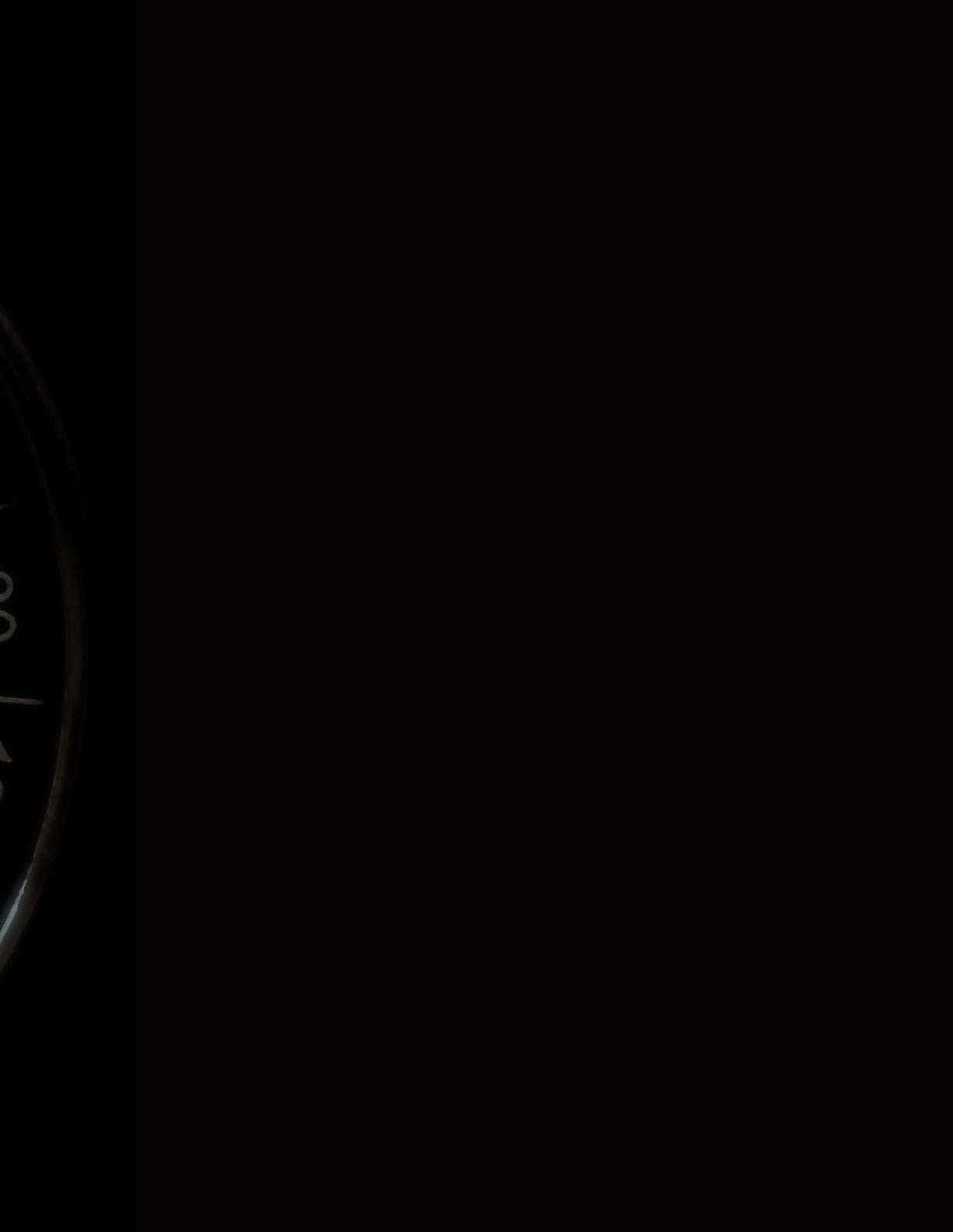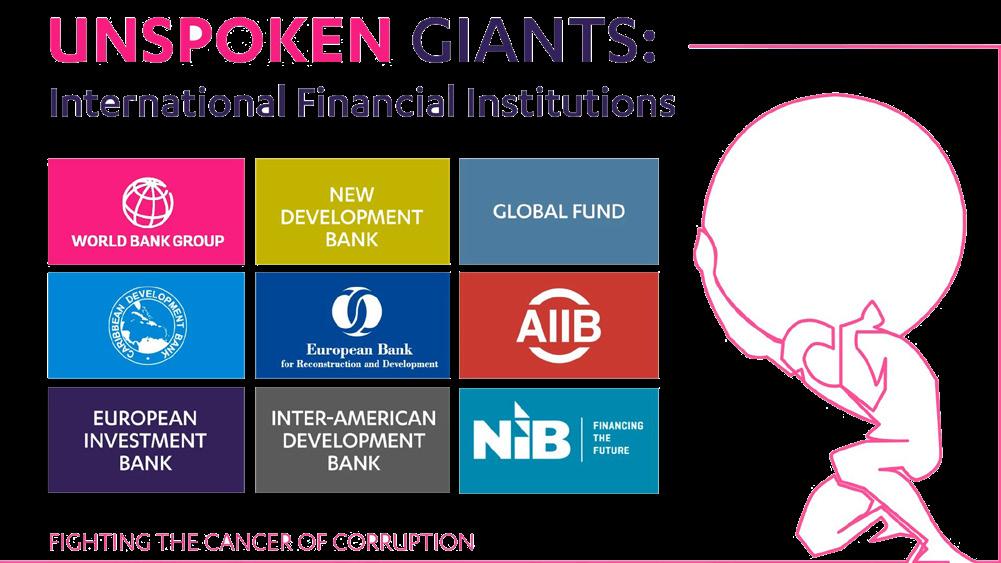

ABOUT THIS ANNUAL REPORT
The Caribbean Development Bank is a regional financial institution established in 1970 for the purpose of contributing to the harmonious economic growth and development of its Borrowing Member Countries (BMCs). In addition to the 19 BMCs, CDB’s membership includes four regional non-borrowing members – Brazil, Colombia, Mexico and Venezuela and five non-regional, non-borrowing members; i.e., Canada, China, Germany, Italy, and the United Kingdom.
The Office of Integrity, Compliance and Accountability (ICA) is an independent office of the Caribbean Development Bank that was established by the Board of Directors (BOD) on December 1, 2015. ICA is mandated to operationalise, manage, and refine the Strategic Framework for Integrity, Compliance and Accountability (Strategic Framework). BOD oversees ICA through its Oversight and Assurance Committee (OAC).
ICA is obligated to publish an Annual Report as part of its policy obligations to the Board and beneficiaries of the Bank pursuant to the Strategic Framework. The publication is targeted towards the Bank’s stakeholders, specifically the Board of Governors, BOD, members of staff, development partners. interest groups, the media and the general public. The Report will be made accessible electronically via online channels including the Bank’s website.


TABLE OF CONTENTS
STATEMENT FROM HEAD OF THE OFFICE OF INTEGRITY, COMPLIANCE AND 1 ACCOUNTABILITY (ICA)
Background: The Fiduciary Duty, the Strategic Framework and ICA 5

Organisational Structure 6

ICA’s Mission 7 ICA’s Strategy 7 How ICA’s strategy delivers value to CDB 7
Impact of Covid-19 on ICA’s Operationalisation Strategy 7
ICA’s Risk Radar for 2021 8
PILLAR I: WHISTLEBLOWING, ETHICS, AND INTEGRITY 8
Prevention: Integrity Due Diligence (IDD) Toolkit 9

Prevention: Internal Advisories for Institutional Integrity and Ethics 9
Investigations: Preliminary Statistics and Temporary Suspension 9



STATEMENT FROM HEAD OF THE OFFICE OF INTEGRITY, COMPLIANCE AND ACCOUNTABILITY (ICA)

Three golden threads
Each year, ICA publishes an annual report of its activities in accordance with ICA’s Board ap proved mandate to operationalise and manage CDB’s Strategic Framework for Integrity, Compli ance and Accountability.
There are three golden threads evident through out this report. The first thread concerns ICA’s strategy. ICA’s strategy of prioritising prevention is working well. ICA’s strategy enables ICA to aim for synchronicity to support CDB positively and more broadly, than envisaged by the Strategic Framework. ICA’s work as summarised in this re port was undertaken successfully by the ICA team through times of crises and uncertainty, when the need for CDB mission to reduce poverty and to drive recovery, resilience and sustainable eco nomic growth in its Borrowing Member Countries is a paramount pursuit. ICA’s strategy helped CDB to continue this critical mission.
The second thread is about balance. ICA’s work strikes a critical balance between the need to be proactive at the front-end, to anticipate threats to CDB’s ability to navigate the modern operating environment and at the back end to be reac tive with agility to the demands of daily adverse events that can undermine CDB’s mission. ICA struck this balance during 2021, which resulted in an intense, challenging, and productive year for ICA.
The third thread is about dynamic evolution. ICA continues to evolve along with the risks faced by
TOUSSANT BOYCE, PH.D. Head, Office of Integrity, Compliance and Accountability

CDB, internally, and in its external operating en vironment. In the first ICA Annual Report in 2016, it was noted that the nature and evolution of risks inherent in modern development banking demands a broad, forward-looking, and enhanced approach to internal governance. It was argued that modern governance frameworks cannot be static. They must promote stewardship of devel opment resources, confront a wide array of risks through robust preventative and investigation functions and evolve dynamically to meet the challenges posed by new risks.
This report chronicles ICA’s work during 2021 and reflects the evolution of ICA into an office that is continually ensuring that it adjusts to new risks. It is not exhaustive of ICA’s activities under taken during 2021. Rather, it provides a snapshot of challenges and triumphs, informative insights, and reflections on ICA’s 2021 experiences. It is structured thematically around the four pillars of ICA’s mission and strategy. Pillar I covers Insti tutional Integrity and Ethics and Whistleblowing. Pillar II covers Compliance. Pillar III covers Project Accountability. Pillar V covers collaboration with other IFIs and development partners to develop international best practices and to enhance the effectiveness of the Strategic Framework and ICA.
It is written to be understood by everyone, from most die-hard development banker to the least sophisticated stakeholder who is keen to learn more about ICA. It chronicles ICA’s contribution to building a better CDB for today, and a produc tive, stable, and resilient Caribbean for tomorrow.
Integrity
Choosing courage over comfort; choosing what is right over what is fun, fast, or easy; and choosing to practice our values rather than simply professing them.
 Brené Brown
Brené Brown
OVERVIEW
BACKGROUND: THE FIDUCIARY DUTY, THE STRATEGIC FRAMEWORK AND ICA

The Caribbean Development Bank (CDB or the Bank) was established by treaty among its member countries in October 1969 and commenced operations in 1970. Paragraph 15 of the Agreement Establishing the Caribbean Development Bank (Charter) imposes a fiduciary duty on the Bank to ensure that every dollar of development resources loaned or granted is used for its intended purpose. This fiduciary duty requires CDB to identify, assess, mitigate, and remediate, as far as possible, any integrity and other risks to CDB’s mission, internal systems, and external operations. Consequently, to help
meet the requirements of CDB’s fiduciary duty on March 2015, the Board of Directors (BOD) of the Bank approved a Strategic Framework for Integrity, Compliance and Accountability (Strategic Framework). ICA’s work started on the first day of its establishment on December 1, 2015, and then in January, 2016, ICA commenced a fully accelerated operationalisation of the Strategic Framework.
Pursuant to the Strategic Framework, the BOD approved a suite of relevant policies and an internal independent Office of Integrity, Compliance and Accountability (ICA) within the Bank’s organisational structure to be overseen by its Oversight and Assurance Committee (OAC) as illustrated on Figure 1 below.
ICA’s mandate is to operationalise, manage, and refine the Strategic Framework. ICA’s mandate includes managing risks to CDB which may arise from: (a) integrity risks like fraud, corruption and cybercrime, specifically cyberfraud; (b) compliance related risks from money laundering, terrorist financing (AML/CFT) and financial sanctions; (c) internal staff misconduct arising from breaches of the Bank’s Code of Conduct; and (d) citizen-driven complaints of environmental and social harm from projects financed by CDB which are handled through a Projects Complaints Mechanism (PCM). ICA also manages the Bank’s Whistleblower System.
ORGANISATIONAL STRUCTURE
ICA manages five internal governance functions converged in a single office. These functions are: (1) Institutional Integrity; (2) Ethics; (3) Whistleblowing; (4) Compliance; and (5) Accountability. They cover the core legacy and modern internal governance functions which are typically managed by multiple independent offices at multilateral development banks (MDBs) and other International Financial Institutions (IFIs). The key intended activities for each ICA function are outlined in the graphic on Table 1 below.

ICA’S MISSION

ICA helps CDB to meet its fiduciary duty through the detection, prevention, investigation, suspension, and sanction of wrongdoers. ICA uses several methods and mechanisms including internal training, capacity building, outreach, and thought leadership to CDB’s Borrowing Member Countries (BMCs). ICA’s mission is to help ensure that CDB adheres to the highest standards of integrity, ethics, compliance, transparency, and accountability. This mission is delivered through a strategic internal governance framework that is designed to be consistent with modern best practices of IFIs and tailored to the Bank.



ICA’S STRATEGY
ICA’s approach to operationalising the Strategic Framework is: (a) risk-based and proportional; (b) strategic, to prioritise the prevention of violations which will also help to reduce the volume of costly investigative activities; (c) incremental; and (d) phased. ICA’s operationalisation strategy enables it to evolve in a manner that is tailored to the Bank’s operating environment, needs, size and resources. It enables ICA to evolve and move nimbly in a manner that is tailored to CDB’s risks, operating environment, needs, size and resources. ICA’s strategy is reflected in ICA’s four pillars that cover all five functions.
HOW ICA’S STRATEGY DELIVERS VALUE TO CDB


ICA is fundamental to CDB’s internal governance architecture and its external operations. ICA helps the Bank:
(a) at the front-end, to be a robust financial institution which is attractive to members and its funders. In this way, ICA helps the Bank to harness and deploy funding effectively and to the intended beneficiaries in accordance CDB’s fiduciary duty in the Charter;
(b) at all times, to identify proactively, prevent and to mitigate reputational damage and financial loss from fraud, corruption and other related risks and activities; and
(c) at the back-end, to respond reactively to all complaints alleging integrity violations, ethics violations and accountabilityrelated (environmental and social) harm and to independently assess, investigate and resolve all issues by itself or in collaboration with other IFIs and stakeholders.
IMPACT OF COVID-19 ON ICA’S OPERATIONALISATION STRATEGY
Despite Covid-19, ICA’s work continued successfully in 2021 but with challenges related to planning for and conducting in-person activities like outreach and investigative interviews conducted on-site in BMCs.
Requests for advice and assistance from ICA continued uninterrupted and even increased over the last two years. There was a comparatively higher than expected number of requests to assist with risk assessments and integrity due diligence activities. ICA’s ability respond to those increased requests continued while working remotely and in a hybrid environment. ICA also continued to pay special attention to increased related risks like Covid-19-related fraud and corruption as indicated on ICA’s Risk Radar 2021 and their impact on CDB and other CDB stakeholders. Consequently, ICA included a special session on Corruption and Covid-19 in its thought leadership through the second annual Caribbean Conference on Corruption, Compliance and Cybercrime as reported below.
ICA’S RISK RADAR FOR 2021






























ICA manages the Bank’s Whistleblower System which has six reporting channels.

ICA manages the Bank’s Whistleblower System which has six reporting channels. The Whistleblower System includes a globally accessible hotline that facilitates collect calls; a globally accessible online webform which together with the hotline is linked directly to ICA’s Case Management System (CMS); emails; telephone; mail; and office visits as shown on Figure 3 below.
PREVENTION: INTEGRITY DUE DILIGENCE (IDD) TOOLKIT





Consistent with its operationalisation strategy to prioritise prevention, ICA launched the IDD Toolkit in 2018 and worked to promote and conduct simplified IDD and enhanced due diligence. ICA in collaboration with the Finance and Information Technology Solutions Department (FITSD) and Procurement Policy Unit, fully digitised the IDD Toolkit and an IDD Search Bot which is used continually by frontline staff in both the Operations and Corporate Services Areas of the Bank. ICA is engaging in further work with FITSD to enhance the IDD Toolkit.

ICA’s work continued to help ensure that all frontline staff are equipped to help protect the Bank by using the tools in the IDD Toolkit and their own good judgment and to make appropriate referrals to ICA. ICA conducted enhanced due diligence (EDD) investigative activities on an increased number of firms and individuals in comparison to 2020.
PREVENTION: INTERNAL ADVISORIES FOR INSTITUTIONAL INTEGRITY AND ETHICS
ICA issues internal advisories to all staff as part of its work to undertake proactive steps to prevent the occurrence or recurrence of integrity and ethics violations. In 2021, ICA issued one Advisory related to institutional integrity, for a matter that is currently under investigation.













ICA conducted one proactive review and monitoring of potential integrity and reputational risks to CDB from a Commission of Enquiry in a BMC. ICA also imposed temporary suspensions on an entity and certain individuals who are the subjects of ICA investigations.
As is typical for some MDBs, investigative intake is not done exclusively through ICA’s CMS. Some matters are fed directly into the CMS while received or commenced but are handled outside of the CMS. Examples of the former include allegations of Integrity-related prohibited practices and annual conflict of interest declarations. Examples of the latter include Integrity inquiries and due diligence, Ethics, Compliance and Accountability advisories and sensitive or relatively small matters being monitored. 171 of these matters that were submitted for investigation or review during 2021 are currently in the CMS. 15 matters were handled outside of the CMS. Action was taken in all cases in the CMS as indicated in Figure 6 below.
5.85%
COI Disclosure





















FORM 161 94.15%
INVESTIGATIONS 10 5.85%
TOTAL IN CMS FOR 2021 171
Figure 6:


Cases by Type in CMS data for 2021
Figure 7: Cases by Type in CMS data for 2021
ICA conducted counterparty due diligence (CDD) for Know Your Customer (KYC) information collection on financial counterparties and conducted due diligence and compliance checks on 8 financial institutions and other entities that were planning to engage with the Bank as financial counterparties.
ICA also provided training for CDB members of staff as outlined in Appendix 1.


PILLAR II: COMPLIANCE
COUNTERPARTY DUE DILIGENCE

During 2021, ICA conducted counterparty due diligence (CDD) for Know Your Customer (KYC) information collection on our financial counterparties and conducted compliance checks on other entities that were engaging with the Bank.
ICA conducted initial CDD on all primary counterparty financial institutions. ICA has also supported the Bank’s Finance Division in its establishment and maintenance of correspondent and other banking relationships with new financial counterparties by providing guidance and advice about their requirements.
ADVICE ON FINANCIAL INSTITUTIONS HOLDING DESIGNATED ACCOUNTS
ICA has conducted multiple CDD on financial institutions at which designated accounts are to be held to assist with disbursement of CDB financing for projects.

COMPLIANCE ADVICE AND GUIDANCE
ICA also assisted various departments with guidance and advice on Integrity and Compliance-related terms in agreements. ICA assisted the Projects Department and the Legal Department with reviewing compliance provisions in draft finance and other agreements and memoranda of understanding being negotiated between CDB and other MDBs and funding agencies.
COMPLIANCE-RELATED TRAINING
ICA also delivered Compliance training to staff during mandatory training sessions and the Caribbean Conference on Corruption, Compliance and Cybercrime 2021.
PILLAR III ACCOUNTABILITY

ICA engaged with its MDB counterparts and participated in activities to help inform its work outreach, training and on finalisation of the Accountability Procedures for its Projects Complaints Mechanism. There were no new Accountability cases during 2021. However, ICA’s training as outlined below provided robust education and prevention-focused training for all CDB members of staff and regional stakeholders.
INREACH: TRAINING AND CONSULTATIONS
Mandatory Training 2021 – All Functions and Induction Training
ICA is mandated by its Terms of Reference to undertake all steps to ensure prevention and detection of fraud and other integrity and ethics violations. Training is the key pillar of successful prevention. While management of the Bank has the primary responsibility for ensuring that all members of staff are properly trained, ICA is responsible for delivering effective training on ICA-related issues to staff as part of its strategy to prioritise prevention.
Together with the Accountability training conducted in July 2021, ICA also conducted mandatory induction training and other mandatory training and awareness for all staff on:
ICA also provided training jointly with the Procurement Policy Unit titled “New Procurement Procedures and IDD Tool Training.”
OVERVIEW OF CDB’S STRATEGIC FRAMEWORK (All functions)
WHISTLEBLOWING (WHISTLEBLOWER SYSTEM)
(a) Duty report and cooperate
(b) Demonstration: How to report wrongdoing through the CDB Whistleblower System
ETHICS (CODE OF CONDUCT)
(a) Staff Misconduct: conflicts of interest; harassments; gifts; fraudulent acts etc.,
(b) Demonstration: How to use the new Annual Conflict of Interest Disclosure Portal
INTEGRITY, COMPLIANCE AND ACCOUNTABILITY TOOLS
(a) What is Integrity Due Diligence (IDD)?
(b) Demonstration: How to use the new IDD SearchBot Tool and Master Red Flags Checklist Reporting Tool
LESSONS LEARNED (All functions)
(a) Sharing lessons from select ICA cases/investigations (2016-2020)
(b) Insights on CDB’s cyber fraud risks during COVID; phishing etc.
(c) Collaboration with ITSD: Cyber threats, training and simulations for 2021
Appendix 1 provides a list of the subject matter of all ICA’s training for 2021.
The diagram illustrates the results of ICA’s training effectiveness tests from 2017 to mid2021 which was done using an Electronic Quiz.
ICA’S TRAINING EFFECTIVENESS E-QUIZ RESULTS (2017-2021)


PILLAR IV: COLLABORATION - MEETINGS, CONFERENCES AND PARTICIPATION IN IFI AND MDB GROUPS
COLLABORATION - COOPERATION AND INFORMATION SHARING
ICA met and collaborated with independent offices in other MDBs and IFIs to fulfil its mandate. ICA also participated in joint training and outreach exercises pursuant to the Integrity, Ethics and Accountability functions.
CONFERENCE OF INTERNATIONAL INVESTIGATORS 2021
The Conference of International Investigators (CII) was established in 1999, as a premier forum for investigators of international organisations to exchange ideas, discuss integrity issues, address challenges in fighting fraud, corruption, and other wrongdoing, receive new developments and share leading practices.
From May 4-6, 2021, all ICA staff attended the CII’s 21st Virtual Conference which was hosted by the United Nations and included training and sessions some of which were attended by ICA staff, on:
• Standards of Proof in Investigating and Litigating Cases I
• Interviewing Skills II
• Remote Forensics. New tools in Remote Digital Data Collection
• Investigating Complaints Against Senior Management
• The Anti-Harassment Coordinator. A New and Innovative Way of Addressing and Resolving Harassment and Sexual Harassment Allegations
• Unique Challenges of Small Investigative Offices
• The Art of Perception: Seeing What Matters Now

• Online People Research
• Data analysis, from pre-processing to reporting
ENMO 2021 – MEETINGS OF HEADS OF ETHICS OFFICES
In early 2021, CDB joined the Ethics Network of Multilateral Organisations (ENMO). During the year, the Head, ICA attended two ENMO meetings of Heads of Ethics Offices from July 8-9, 2021, and November 17-18, 2021, which covered sessions on:

(1) Addressing discrimination and racism in international organizations from the perspective of ethics offices; and
(2) Ethics and Social Media: Personal use of social media sites and associated ethical risks.
GRAM TRAINING
On July 14, 2021, and October 8, 2021, ICA attended seminars hosted by the Grievance Redress and Accountability Mechanism (GRAM) alliance of which ICA is a member. The seminars covered:
(1) Accessibility to Grievance Redress Mechanisms; and
(2) Designing and administering effective Grievance Mechanisms.
THE UNSPOKEN GIANTS PODCAST


In May 2021, the RPC law firm invited the Head, ICA to join the Unspoken Giants podcast which is a series of conversations with senior leaders of integrity and sanctions offices at some of the world’s largest MDBs and IFIs including the World Bank, Inter-American Development Bank (IDB), European Investment Bank, Asian Infrastructure Investment Bank, Nordic Investment Bank and the New Development Bank.
RPC reported that the themes of the podcast ranged from the mechanisms for investigating and sanctioning corruption and fraud, to efforts to ensure due process and consistency and that the Unspoken Giants series provided a unique insight into MDBs and IFIs. The Head, ICA was invited to contribute on behalf of CDB and provided a 45-minute interview to the podcast which was published in October 2021.

IAMNET 18TH ANNUAL MEETING 2021

On September 27, 28 and 30, 2021, ICA attended and contributed to the 18th Annual Meeting of the Independent Accountability Mechanisms Network (IAMnet).
During the meeting, the Head, ICA co-facilitated a Panel with Civil Society Organisations that discussed the impact on Accountability cases of restricted civic space prior to and during the Covid-19 pandemic.

ACCOUNTABILITY COLLABORATION WITH THE WORLD BANK: GENDER-BASED VIOLENCE


ICA delivered major targeted mandatory training through a Fireside Chat on “Practical Insights on Gender-based Violence in Projects for Development Institutions.”
This training was mandatory for staff of the Operations Area and voluntary for all other staff on Sexual Exploitation and Abuse and Sexual Harassment as shown on the image at Figure 7 below.
To deliver this training effectively, ICA collaborated with the World Bank’s Inspection Panel (now the Accountability Mechanism) and CDB’s Social Sector Division. The World Bank’s Accountability Mechanism has wideranging case-specific expertise from the conduct of two major recent investigations in Uganda and the Democratic Republic of Congo that led to institutional changes in the World Bank’s approach to SEA.
Ms. Imrana Jalal, the then Chair of the Inspection Panel provided the main presentation as featured speaker.
Hosting of Joint Regional Outreach Accountability Workshop in collaboration with the Independent Accountability Mechanisms of the IDB, World Bank, United Nations Development Programme (UNDP) and Caribbean Policy Development Centre


Figure 7: ICA’s Mandatory Training on GenderBased Violence
On November 15 and 16, 2021, ICA collaborated with four independent accountability mechanisms (IAMs), the IDB’s Independent Consultation and Investigation Mechanism, World Bank Group’s Accountability Mechanism and Compliance Accountability Ombudsman and the UNDP’s Social and Environmental Compliance Unit.
The IAMs co-hosted an interactive Joint Virtual Regional Outreach Workshop for Civil Society Organizations (CSOs) in the Caribbean region in collaboration with the Caribbean Policy Development Centre.




The Workshop raised awareness of the existence and work of IAMs as citizen driven mechanisms that receive and respond to complaints of persons and communities of environmental and social harm allegedly caused by projects financed by their parent organisations.
Representatives of 34 CSOs from 11 countries in the Region, including Haiti, attended the workshop. The CSOs in attendance were broadly representative of Caribbean civil society, including advocates for indigenous people, agriculture, environment conservation, human rights, children, youth, disabled and gender advocates. The IAMs of the CDB, IDB, World Bank and UNDP generally take a collaborative approach to increasing awareness of the work of IAMs among project-affected people, and are contemplating conducting similar exercises annually for stakeholders in the Caribbean.
CARIBBEAN CONFERENCE
ON CORRUPTION, COMPLIANCE AND CYBERCRIME


CDB CONFERENCE ON CORRUPTION, COMPLIANCE AND CYBERCRIME 2021

ICA very successfully hosted the second virtual CDB flagship Caribbean Conference on Corruption, Compliance and Cyber-fraud (3Cs) on December 7-8, 2021.
ICA very successfully hosted the second virtual CDB flagship Caribbean Conference on Corruption, Compliance and Cyberfraud (3Cs) on December 7-8, 2021.
3Cs 2021 was convened on those dates specifically to coincide with International AntiCorruption Day, which is observed annually and globally on December 9, 2021 by governments and organisations. 3Cs 2021 continued the high level of education and thought leadership delivered to the Region through the inaugural 3Cs 2020. It convened thought-leaders from across the world to share and discuss new challenges and solutions to combatting corruption, money laundering, and cyber-crime, particularly cyber-fraud in the Caribbean. It educated Caribbean stakeholders, particularly CDB beneficiaries, on cutting edge approaches to finding solutions to the challenges of the 3Cs.
As was the case with the highly successful initial 3Cs 2020, the speakers, moderators, and other contributors for 3Cs 2021 included about 60 experienced global anti-corruption practitioners, anti-money laundering specialists, cyber-crime professionals, development bankers, policy makers, regulators, law enforcement personnel,

academics, private sector, civil society leaders and students. CDB’s management and staff members also participated as speakers and moderators in their respective areas of expertise.
3Cs 2021 was intentionally free to ensure that its content was accessible to everyone globally and across every spectrum of interest, from policymakers to students. The 3Cs 2021 content covered the 3Cs in the context of sustainable economic resilient development of the Caribbean. It delivered fresh perspectives on governance, corruption, compliance, and cybercrime across areas that included prevention, investigations, and regulation. It covered current and major issues like the impact of the 3Cs on governance, sustainable development, Covid 19, women, youth, private sector, the media, and civil society in the Caribbean. A summary of relevant attendance data and an outline of conference sessions is provided below in Appendix 3.
APPENDICES



SCOPE OF ICA’S DELIVERY OF MANDATORY AND VOLUNTARY TRAINING TO STAFF (2016-2021)

NO. SESSIONS AND TOPICS COVERED
DURING GENERAL, TARGETED TRAINING AND CONFERENCES
1 Strategic Framework 2 Combating Corruption 3 Fraud Prevention 4 Integrity Due Diligence 5 The ICA investigative process 6 AML/CFT and Sanctions Compliance 7 Accountability 8 Special Session: Cybercrime in Collaboration with the Federal Bureau of Investigations 9 Special Session in Collaboration with the World Bank’s Inspection Panel: Gender Based Violence, Sexual Exploitation and Abuse in IFIs 10 Harassment, Sexual Harassment, and Intimidation 11 The Whistleblower System 12 Induction Training for New staff 13 Learning Outcomes for Management 14 Promoting Good Governance by Curbing Corruption, Money Laundering and Cybercrime 15 Role of Good Governance in the Drive to End/Reduce Poverty and Drive Growth in the Caribbean 16 Role and Work of Integrity Offices in MDBs 17 Drivers of Corruption in the Caribbean: Perception, Drivers and Trends 18 Corruption Prevention: New tools and techniques 19 Corruption: Investigations, Sanctions and Sanctions Compliance 20 Re-Thinking AML/CFT Compliance 21 Investigation of Corruption and Money Laundering: Lessons for the Caribbean 22 New Insights on Cybercrime: Lessons for the Caribbean 23 Role and Experience of the Private Sector in Curbing Corruption, Money Laundering and Cybercrime 24 Corruption and Covid 19 Financing 25 Corruption and Climate Finance 26 Corruption and Women 27 Corruption and Youth 28 Role of the Media in Combating Corruption, Money Laundering and Cybercrime in the Caribbean 29 Role of Civil Society in Combating Corruption 30 Money Laundering in the Caribbean: Current Landscape; Risks and Trends 31 Money Laundering in the Caribbean: Investigations, Prosecutions and Sentencing: Lessons from Global Investigations 32 Cybercrime in the Caribbean: Risks, Trends & Practical insights for the Region 33 Connecting Corruption, Compliance and Cybercrime in the Caribbean 34 Emerging Trends in Corruption, Compliance and Cybercrime
This table illustrates the topics covered in general mandatory, voluntary and targeted training sessions between 2016 to 2021 including training delivered to all staff through the 3Cs 2021 Conference.


(B) OUTLINE OF SESSIONS




Dr. Toussant Boyce, Head, ICA welcomed to all attendees and outlined the rationale for conceptualising and hosting 3Cs. He noted that global speakers will share cutting edge insights into the impact of these challenges on economic development of the region, and solutions to them. He also noted that corruption, money laundering, illicit financial flows and cybercrime undermine the Sustainable Development Goals by weakening the effectiveness and accountability of national and regional institutions. He noted that they also hinder the fight against poverty by diverting financial resources intended for poverty reduction away from projects that deliver economic growth, into the hands of criminals.

President, Dr. Hyginus Leon, delivered the Keynote Address during which he pointed out that the promotion of good governance has always been at the core of CDB’s mandate and fiduciary duty to ensure that every dollar of development funding reaches its intended beneficiary. To achieve this objective, CDB has established governance as a cross-cutting component of its business strategy.
He noted that the development of appropriate and effective anti-corruption tools and strategies to counter corruption of climate finance is of specific concern to the CDB, which is at the forefront of the drive to access affordable climate finance for our BMCs.



He pointed out that given the immense need throughout the region, BMCs countries cannot risk any form of sanction that could limit their access to these resources. He urged BMCs to be vigilant and to put in place strong monitoring, compliance, and accountability frameworks to not only secure climate financing, but to facilitate timely
 Dr. Hyginus Leon
Dr. Hyginus Leon
implementation of climate change interventions for the benefit of the peoples of our region. He noted that the importance of effective governance systems cannot be overstated, especially as the region will need to raise financing from private sources which already account for more than 50% of available climate funding.
He stated that the current economic and social challenges should be more than enough incentive for BMCs to take the appropriate action by instituting suitable systems for accountability and compliance which are necessary for building investor confidence and attracting investment for the achievement of sustainable development.

He stated also that the discussion on cybercrime is also quite timely as the Caribbean embraces the potential of a secure, single, digital space, capable of transforming the region’s productive capacity that will require cybersecurity governance, including policies and processes to detect and prevent cyber threats and cybercrime. He noted that weak governance, places the region’s economies and societies in peril; and CDB’s anticorruption outreach is yet another means through which we can support sustained and resilient economic development in our region.

3.



POWER PANEL: Role of Good Governance in the Drive to End Poverty
On this Power Panel, Mrs. Diana Wilson Patrick, General Counsel, CDB moderated a high-level discussion with Governor Timothy Antoine, Eastern Caribbean Central Bank and Mr. Ed Olowere Okere, Director, Global Governance Practice, World Bank on the President’s Keynote Address, and the importance of Good Governance to end poverty and drive growth in the Caribbean.
 WBG - Ed Olowere Okere
Timothy Antoine, ECCB Governor
WBG - Ed Olowere Okere
Timothy Antoine, ECCB Governor
4. PANEL: Prevention and Drivers of Corruption in the Caribbean





This Panel was moderated by the Head ICA and comprised Professor Trevor Munroe, Principal Director of National Integrity Action, Chapter of TI, Jamaica, Dr. Darran Newman, Advisor to the Vice President (Operations), CDB, Dr. Dawn De Coteau, Barrister & Founder and CEO, EMA Solutions and Dr. James Anderson, Lead Governance Specialist, World Bank Group.
This Panel covered several key questions, including: Demand and supply side drivers of corruption. What drives corruption globally? What drives Corruption in the Caribbean? New global insights on the detection and prevention of corruption. Insights on the state of corruption in the Caribbean. How is corruption continuing to impact the region’s economic landscape? What are the new corruption methods that have impacted or can impact the Region?
Dr. Toussant Boyce Dr. Dawn De Coteau Dr. Darran Newman Dr. James Anderson5. PANEL: Investigating Corruption: Lessons for the Caribbean



This panel was moderated by Mr. Samir Fahoum, Principal Integrity Officer, IDB and comprises speakers Mr. Adam Storer, Federal Bureau of Investigations (FBI), Ms. Lloydette Bai-Marrow, Parametric Global Consulting, Mr. Mark Day, USAID, and Dr. Kristin Gilkes, Ernst and Young. It provided key global insights into the investigation of corruption and mitigation of corruption risks and discussed several practical solutions and questions including: How are investigations being done through the pandemic? New Digital tools and techniques to investigate Corruption and Money Laundering/Illicit Financial Flows. How can investigations lead to policy changes.
 Samir Fahoum
Dr. Kristin Gilkes
Lloydette Bai-Marrow
Adam Storer - (FBI)
Samir Fahoum
Dr. Kristin Gilkes
Lloydette Bai-Marrow
Adam Storer - (FBI)
6. PANEL: Cybercrime: Lessons for the Caribbean



This panel was moderated by the Head, ICA and comprised of speakers Jason Manar (former Supervisory Special Agent, Cybercrime Oversight for South America, Latin America and the Caribbean, FBI and currently the CISO at Kaseya) and Mr. Dale Joseph, Cybercrime Policy Specialist at CARICOM IMPACS, delivered expert insights into regional cybersecurity and emerging cybercrime threats, mitigants and solutions for Caribbean businesses and individuals. It explored several questions including - the new cybercrime methods, particularly cyber-fraud methods that have impacted or will impact the Region? What
are some of the new tools being used? How can the region adapt, learn, and grow into the modern global digital environment safely and securely with minimal adverse effects? How has Covid 19 expanded or contracted cybercrime? What will it take to ensure sustainable transformation of the regional cybercrime infrastructure at the national and regional levels, for example awareness, infrastructure, legislative reform, digital transformation, collaboration, investigation, and certification of personnel? How does cybercrime affect every sector in the Caribbean from small businesses to Banks and Attorneys-at-Law?
Dale Joseph, CARICOM IMPACS Jason Manar7. PANEL: Re-Thinking AML/CFT Compliance for the Caribbean


This panel of experts was moderated by Mr. Calvin Wilson, Former Executive Director, Caribbean Financial Action Task Force with speakers Ms. Dawne. J. Spicer, Executive Director, Caribbean Financial Action Task Force, Mrs. Shelley Nichols-Hunte, Legal and Compliance Manager, BWUCCU Ltd and Dr. Rohan Clarke, Mona Law School, University of the West Indies. It examined and re-imagined the regional landscape for AML/CFT Compliance in the Caribbean. Key questions covered were whether the current architecture for AML/CFT Compliance the right architecture and if not, what is wrong with modern AML/CFT compliance architecture and how to fix it.
 Calvin Wilson
Dawne J. Spicer
Shelley Nicols-Hunte
Calvin Wilson
Dawne J. Spicer
Shelley Nicols-Hunte
8. PANEL: The Role of the Private Sector in Curbing Corruption, Money Laundering and Cybercrime


This Roundtable for CEOs was hosted by Mr. Isaac Solomon, Vice President of Operations CDB, who engaged with two of the most prominent CEOs of the largest and best of breed organisations in the Caribbean, Mr. Nigel Baptiste, President and CEO, Republic Financial Holdings Ltd and Mr. Anthony Ali, Managing Director, Goddards Enterprises Ltd.
This Panel explored and delivered great insights into the experiences and role of the private sector in dealing with risks arising from corruption, money laundering and cybercrime in the Caribbean.
 Issac Solomon
Anthony Ali
Issac Solomon
Anthony Ali
9. KEYNOTE DISCUSSION: Governance in Uncertain Times


This session was a Keynote Discussion among leaders of Integrity Offices Mr. Mouhammadou Diagne, Vice President Integrity, The World Bank Group, Ms. Laura Profeta, Chief, Office of Institutional Integrity, Inter-American Development Bank and Dr. Toussant Boyce, Head, Office of Integrity, Compliance and Accountability, CDB. It explores the challenges and mechanisms used globally and by their organisations to achieve good governance in uncertain times of crises like the Covid-19 pandemic.
 Dr. Toussant Boyce
Laura Profeta
Dr. Toussant Boyce
Laura Profeta
10. PANEL: Corruption and Covid-19


This panel of experts was moderated by Mr. Joshua Drayton, Financial Crimes and Asset Recovery Specialist, CARICOM IMPACS engages with Professor Nikos Passas, Professor of Criminology and Criminal Justice, North-Eastern University, and Ms. Corina Rebegea, AntiCorruption Advisor, National Democratic Institute. It explored several questions including - what can the Caribbean learn about managing corruption, fraud, and other risks during the COVID-19 pandemic.
Further, this Panel covered “lawful but awful” practices seen when dealing with risks of fraud and corruption in COVID-19 emergency procurement, pricing including fake vaccines and outright bribery. It examined - What can the Caribbean learn about the impact of Corruption on COVID-19 financing and vaccine procurement? What is the experience in the Caribbean thus far in terms of active investigations of COVID-19? What are some of the new tools, mechanisms, solutions, and strategies being used to prevent corruption through the COVID-19 pandemic? Strategies and approaches for both public and private sectors.
 Joshua Drayton
Nikos Passas
Joshua Drayton
Nikos Passas
11. PANEL: Corruption and Climate Finance


This panel of experts was moderated by Dr. Ulric Trotz, Former Deputy Director & Science Adviser, Caribbean Community Climate Change Center, with speakers Mr. Ibrahim Pam, Head, Independent Integrity Unit, Green Climate Fund, Ms. Rennie Valladares Alcerro, Head of Integrity and Compliance, CABEI and Dr. Michael Nest, Consultant Researcher, U4 Anti-Corruption Research Center. It explored integrity risks in climate financing - Integrity risks related to the mal-adaptation of climate financing; how limited funds available for climate financing can be disrupted by corruption and weak governance; and how climate financing helps the countries in the Caribbean which are also the most vulnerable to corruption, fraud, and other effects of weak governance.
 Ulric Trotz
Ibrahim Pam
Dr. Michael Nest
Ulric Trotz
Ibrahim Pam
Dr. Michael Nest
12. PANEL: Corruption and Women


This panel was moderated by Ms. Jessica Harris, Gender Specialist, CDB, with speakers Ms. Kristen Sample, Director of Democratic Governance, National Democratic Institute and Ms. Luciana Torchiaro, Regional Advisor for Latin America and the Caribbean, Transparency International. It explored many key issues including: the gender dimensions of corruption and its impact particularly on women; whether and how corruption affects women disproportionately at the global and regional levels; the lessons learned from global experiences of curbing corruption that could help women to understand and respond to corruption in the Caribbean.

13. PANEL: Corruption and Youth


This panel was moderated by Ms. Kemberley Gittens, Social Analyst, CDB, with speakers Dr. Troy Thomas, Dean of the Faculty of Natural Sciences, University of Guyana, Ms. Kurba Marie-Questelle, Training and Development Coordinator, Commonwealth Youth Peace Ambassadors and Ms. Rhea Brathwaite, ICA Officer, CDB. It explored several questions including: How to harness the intelligence, power, and responsibilities of youth to combat corruption and effect change? How to increase awareness among youth about the perils of corruption and equip them to recognize and prevent corruption? How young people can shape the current and future fight against corruption?
 Kemberley Gittens
Kurba Marie-Questelle
Kemberley Gittens
Kurba Marie-Questelle
14.PANEL: Role of the Media and Civil Society in Curbing Corruption


This panel of experts was moderated by Ms. Kiran Maharaj, President, Media Institute of the Caribbean with speakers Mr. Will Fitzgibbon, Senior Reporter, International Consortium of Investigative Journalists, Mr. Dion Abdool, Chair Transparency International, Trinidad and Tobago and Ms. Jeanette Calder, Executive Director, Jamaica Accountability Meter Portal. The panel explored several areas including: the role of the media and civil society in curbing corruption; the importance civil society and the media in promoting good governance and positive economic outcomes; whether investigative journalism in the region exists and how do the media and civil society interrelate and promote transparency and accountability in the Caribbean.

15. PANEL: Connecting Corruption, Compliance and Cybercrime; Emerging Trends



This Closing Roundtable with a panel of experts was hosted by the Head ICA and comprised Mr. Jeffrey Coleman, Special Supervisory Agent (Special Supervisory Agent (SSA) – International Anticorruption Unit of the FBI, Lt. Col., Mr. Michael Jones, Executive Director, CARIMPACS, Ms. Dawne Spicer, Executive Director CFATF and Mr. Jason Manar former SSA-Cybercrime, FBI and currently CISO at Kaseya. It explored emerging trends, the connection between corruption, money laundering and cybercrime, the insights provided during 3Cs 2021, next steps and policy recommendations to manage 3Cs in the Caribbean.
 Jeffrey Coleman
Dawne Spicer
Michael Jones
Jason Manar
Jeffrey Coleman
Dawne Spicer
Michael Jones
Jason Manar
(C)
FEEDBACK
The following is a sample of feedback received from attendees of 3Cs 2021, which was all positive:
As a Caribbean citizen I felt a great sense of pride that we were able to attract and command the attention of such a high number of participants from across the world with rich content, solid, open discussion of contemporary topics, triaged with the high professionalism of each of the panels’ facilitators.
There were so many take away nuggets of information that could be shared with others who may not have had the opportunity to participate in the conference.
… phenomenal!

the panels were clearly strategic with the panelists representing the topics well
What I really appreciated was the time taken to select the right people for the panels and the intermix with experts from the global development banking and scholarly community, as well as civil society.
…an excellent conference…the convening was world-class.
I thoroughly enjoyed your 2 day Conference on the related subject matter and listening to your very knowledgeable guest speakers covering the 3Cs
Thanks for leading the way and not only bringing to light these critical issues that impact our way of life, but more-so, identifying ways to solve the problem.
(D) CONFERENCE VIDEOS

Videos of the Conference are available online on ICA’s 3Cs Youtube Channel 3Cs – Corruption, Compliance and Cybercrime.

CONCLUSION
The Conference met its intended objective. It advanced CDB’s efforts to equip its BMCs and other stakeholders with practical insights, cutting edge strategies, best practices, and knowledge of emerging methodologies necessary to identify and mitigate the relevant risks.
Based on the significant record of attendance, quality of audience engagement and feedback, 3Cs 2021 helped CDB to meet its fiduciary duty through internal training, external capacity build ing and thought leadership to its BMCs.

